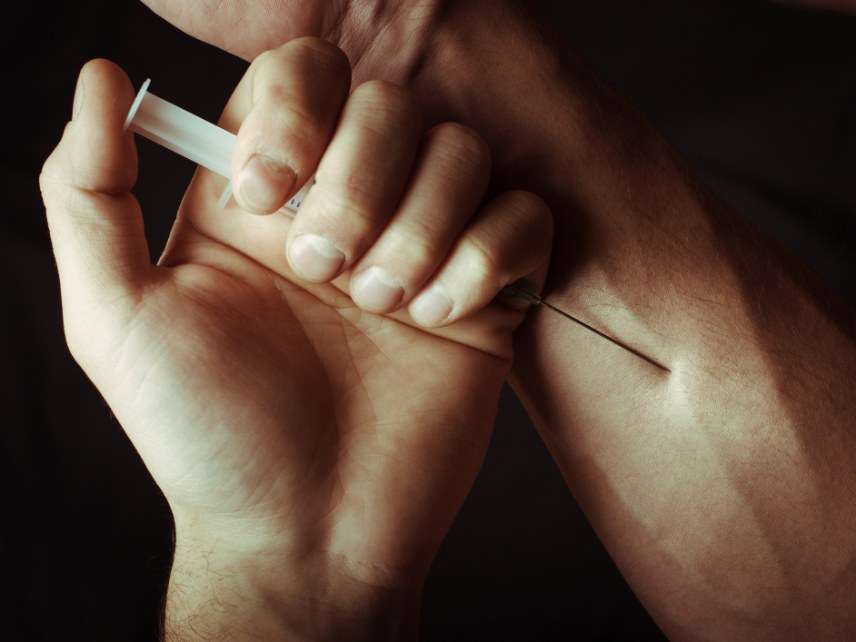Seattle Ballot Initiative Would Block Safe Drug Injection Centers
Some would rather have overdoses than risk "destigmatizing" addiction.

Leaders in Seattle and King County are pushing forward with plans to open two sites where drug addicts may shoot up safely, but local voters are going to get the chance to block it.
At the start of the year, Seattle's mayor and King County's executive announced they were going to build two safe-consumption facilities, based on recommendations from a local task force. The goal is to reduce the likelihood of heroin and opioid overdoses by giving addicts a place to shoot up (that's also out of public view) that is monitored for safety. The model they're pursuing is similar to a facility that has been operating for years in Vancouver.
Like many other communities in the United States, King County is seeing a surge in drug overdose deaths: 332 for 2016. They've seen increases in drug overdose deaths every year for the past seven years.
But there are some who think reducing the possibility of harm through with an injection facility endorses drug decriminalization and even legalization. So opponents of the facility have gathered signatures in order to force a vote. From the Seattle Times:
Opponents of safe-injection sites argue they amount to the government condoning heroin injection. State Sen. Mark Miloscia, R-Federal Way, a leading critic, has said the sites are a step toward legalization and decriminalization.
"We are losing control when we're de-stigmatizing these dangerous drugs," Miloscia said earlier this year. "We need to teach our children and promote not taking these dangerous drugs and stigmatize people who get hooked on drugs to get into treatment."
Initiative 27 would ban any public expenditures to create a supervised drug consumption site. It also makes it a civil violation with fines of up to $5,000 for any private organization to operate a facility to supervise the consumption of any federally prohibited drug, except for marijuana.
So to be clear, this is not just about keeping the government from spending taxpayer money to subsidize addiction. The libertarian-minded private solution to reduce the potential harms of drug addiction would also be forbidden.
Unfortunately, what we've been left with is the typical drug war mentality of hitting drug addicts and dealers with harsher criminal penalties and mandatory minimums. Rather than investing in tools and mechanisms to prevent drug overdoses, we increasingly see communities attempting to prosecute the people who provided these drugs with homicide instead. So instead of fewer dead people, you get dead people and somebody sentenced to decades or life in prison.
The initiative has been scheduled to appear on a ballot in February. But a public health group has just recently filed a lawsuit attempting to block it from a public vote.


Show Comments (36)